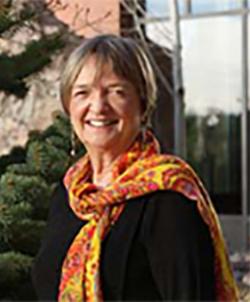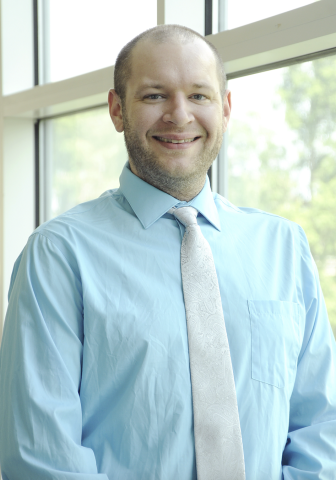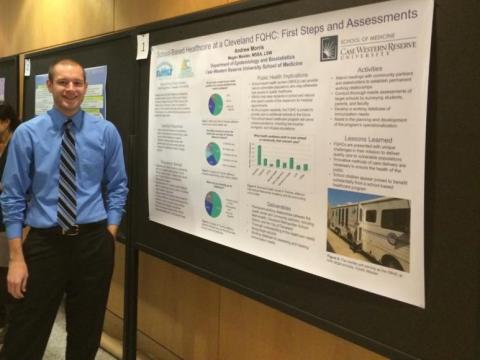Karen B. Mulloy
Associate Professor, Department of Family Medicine and Community Health, School of Medicine
Associate Professor, Department of Population and Quantitative Health Sciences, School of Medicine
Faculty, Mary Ann Swetland Center for Environmental Health
Dr. Karen B. Mulloy, a trailblazer in the field of public health and prevention, has been honored with the prestigious 2023 F. Marian Bishop Educator Award by the Association for Prevention Teaching and Research (APTR). With her unwavering dedication and remarkable contributions to the instruction of students and residents, Dr. Mulloy has set the bar high for excellence in education. Her outstanding achievements have truly advanced the field of public health and prevention, making her a shining example of educational excellence in the healthcare community.
Dr. Karen B. Mulloy explained that it was a great honor to be awarded the F. Marian Bishop Educator of the Year Award. This award is named in recognition of the lifelong achievements of Dr. F. Marion Bishop, a pioneer in the development of academic family medicine and in the sphere of prevention. Dr Mulloy noted that Dr. Bishop’s role as a leader in the field of public health was an inspiration. She recognizes that herself and many others in the public health and prevention field admire APTR for its work as a national organization. She also made it a point that she wanted to thank the Director of the MPH program, Dr. Tish for all his support.
Dr. Mulloy described some of the driving forces that led her to this great achievement of being recognized as educator of the year. One of the forces was having an innovative mindset. Dr. Mulloy believes it is important to be willing to try new things such as learning new teaching and research techniques. Hybrid learning environments grew in popularity due to the Coronavirus but before the pandemic Dr. Mulloy took initiative and worked with CWRU University Technology (UTech) division to convert an environmental health core course into a modern, hybrid learning environment. Dr. Mulloy’s students also impacted her achievement. She states one of the wonderful things about being an educator is being inspired and motivated by your students. She recognizes the importance of students’ feedback and opinions. Dr. Mulloy takes it upon herself to listen and implements her student’s feedback in her classroom.
Overall, CWRU is extremely fortunate to have such an innovative and dedicated faculty member, Dr Karen B. Mulloy, to be a part of their community.
Learn more about Dr. Karen through the questions below
What is your favorite thing about working/teaching at CWRU? I've worked at a number of academic institutions and what sets CWRU apart is that it's cutting edge, specifically their commitment to teach about environmental issues such as climate change in the medical school curriculum. CWRU is just a very exciting place to be. Another great thing about working/teaching at CWRU are the people, my colleagues and students. Everyone is very open to new ideas and methods. My colleagues are supportive and encouraging of each other.
What do you consider to be the most exciting developments or trends in your field right now, and how do you think they will impact the future? Currently, health care institutions and medical schools around this country are recognizing the issues revolving around climate change and how it affects populations. Each year more and more people are impacted by the ecological issues caused by climate change and it is imperative that we address those issues. I think it is really exciting to be at the forefront and be able to help guide the next generation of healthcare providers and leaders to tackle these complex issues.
How does the MPH program and faculty mentorship set students up for success? The CWRU’s MPH program is designed to be able to fit into the interests of students. Besides the core courses students can tailor their practicum, capstone project, and their elective courses to their own individual interests. This gives students the opportunity and ability to learn and follow their passions within public health. Public health encompasses many disciplines so allowing students to specialize in what interests them the most can set them up for success.
What is your dream for the future of public health? My hope for public health is that it can be recognized for its importance. Unfortunately, sometimes the subject itself and the employees of public health can often feel underappreciated and undervalued. My dream for public health is that people appreciate and realize the value of it. For example, the life expectancy in the United States has been advanced due to public health. Once the public sees the value of public health, public health research can hopefully get more funding which can lead to health equity for all communities one day.
What are some of your favorite activities to do in Cleveland? I love going to the Botanical Garden. I think it is a wonderful place to sit, reflect, and think about nature. I also want to encourage everyone to go to the Cleveland Museum of Art which is just steps away from CWRU campus. Most museums around the country charge an entrance fee but the Cleveland Museum of Art is open to everyone for free to visit and explore. It offers another place to sit and contemplate and have a renewal of the spirit.
Andrew Morris
Director of Community Based Education, Department of Population and Quantitative Health Sciences, School of Medicine
2014 Graduate of Case Western Reserve University Master of Public Health Program
Andrew Morris plays two important roles at Case Western Reserve University - he is not only an alumnus of the Master of Public Health Program but also a valuable member of the staff. While studying for his undergraduate degree, Andrew was an active participant in numerous student organizations that introduced him to individuals dedicated to enhancing health and wellbeing in Southeast Ohio. It wasn't until his senior year when he enrolled in a public health course that he became convinced of his passion for this field. Although he received acceptance to several reputable MPH programs, he ultimately decided on CWRU due to the program's historical focus on social justice.
Andrew completed his Master in Public Health degree in the fall of 2014 with a dual concentration in Health Promotion & Disease Prevention and Health Policy and Management. While pursuing his degree, he was employed full-time at a Federally Qualified Health Center and attended classes on a part-time basis. Following his graduation, he was offered a promotion to manage the newly established school health program. (Andrew’s MPH practicum was part of the development of this program.) He served in that position for a few years before being considered for his current role at CWRU. Andrew was encouraged to return as a staff member at CWRU by a couple of former mentors from the MPH program, which helped seal the deal for him. Andrew finds that the best part of working at CWRU is the constant activity and buzz that surrounds the campus. He likes that there is always something going on. Whether it is campus events, lectures, workshops, and even the regular hustle and bustle of campus life, it’s a nice place to work.
Learn more about Andrew through the questions below
Can you describe a typical day or week in your job, and what are your main responsibilities? I spend a lot of time meeting with students about practicum and capstone projects. I spend time talking with faculty, community partners, campus partners, and colleagues within the Department, School of Medicine, and School of Graduate Studies for both administrative and community-based educational things.
What role does being an alumni of the MPH program impact your connections with MPH students? I think my ability to offer advice and guidance to students, especially when it comes to practicum and capstone, is enhanced by my experience as an MPH student. I know what it’s like to struggle with several deadlines and various professional responsibilities. I know what it’s like to be stressed out about finishing capstone. Drawing upon those very real experiences makes it easy for me to connect with current students.
How does your role as Director of Community Based Education set students up for success? The practicum and capstone are immensely important for a student’s educational and professional goals. Time after time I see students gain employment following graduation because of the skills, connections, and experience gained through successful practicums and capstones. The fact that we have my role in the program to support robust, individualized projects is a huge benefit to students that many larger programs don’t have.
What are some challenges recent graduates will face when entering the field and what advice would you give them? Public health is an exciting field. It’s also very broad, so at times the general public doesn’t always understand how important the public health workforce is to a functioning society.
What is your favorite secret or hidden gem in Cleveland, and why do you love it so much? My favorite restaurant in the area is Barroco in Lakewood. The MetroParks (all of them, but I’m partial to the Rocky River Reservation) are great. Rising Star for Coffee. Brick and Barrel for drinks. (Can you tell I’m a west sider?)





